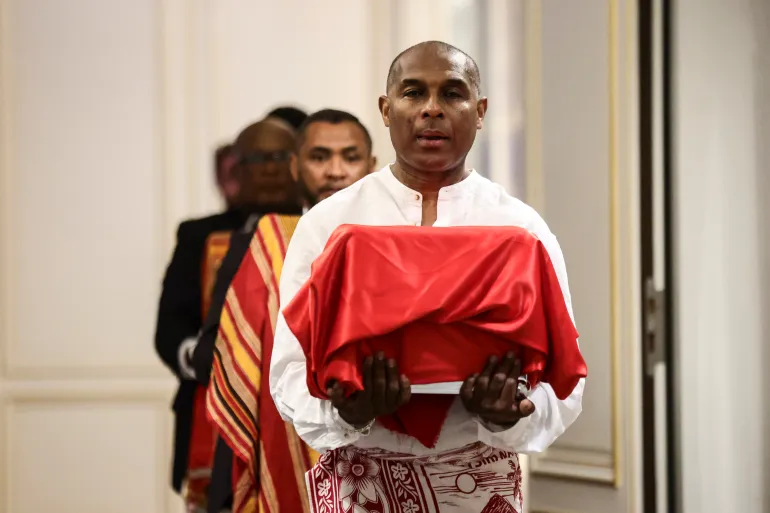France Returns Human Skulls to Madagascar, 128 Years After Colonial Massacre

France has returned three human skulls to Madagascar, more than 128 years after they were looted during the colonial era. The skulls, which had been held in a Paris museum, were formally handed over at a ceremony at the French Ministry of Culture on Tuesday.
One of the skulls is believed to belong to King Toera of Madagascar, who was decapitated by French colonial forces during a massacre in 1897. The other two skulls are from the Sakalava ethnic group, a prominent group on the island.
The remains were originally taken as trophies following the violent suppression of local resistance to French colonial rule. King Toera’s skull, along with those of others, was later placed in the French national collections, a stark reminder of the brutality of the colonial period.
“These skulls entered the national collections in circumstances that clearly violated human dignity and were a product of colonial violence,” said French Minister of Culture Rachida Dati at the ceremony.
The return of these remains marks a significant moment in the ongoing movement for the restitution of cultural artifacts looted during colonial times. French authorities have increasingly engaged in the process of returning such items to their countries of origin.
At the ceremony, Volamiranty Donna Mara, Madagascar’s Minister of Culture, expressed gratitude for the return, describing the taking of the skulls as “an open wound” that has remained for 128 years.
“They are not collectors’ items,” Mara said. “They are the invisible and indelible link that unites our present to our past.”
The skulls were delivered in boxes draped in traditional cloth, and the somber ceremony was marked by a solemn procession through the ornate French ministry.
A joint scientific committee has confirmed that the skulls originate from the Sakalava people. While it could not definitively identify one as belonging to King Toera, the historical context and evidence strongly suggest it is his.
The ceremony serves as a powerful symbol of reconciliation and an acknowledgment of the painful legacy of colonialism, with continued calls for the return of more cultural treasures to their rightful homes.



